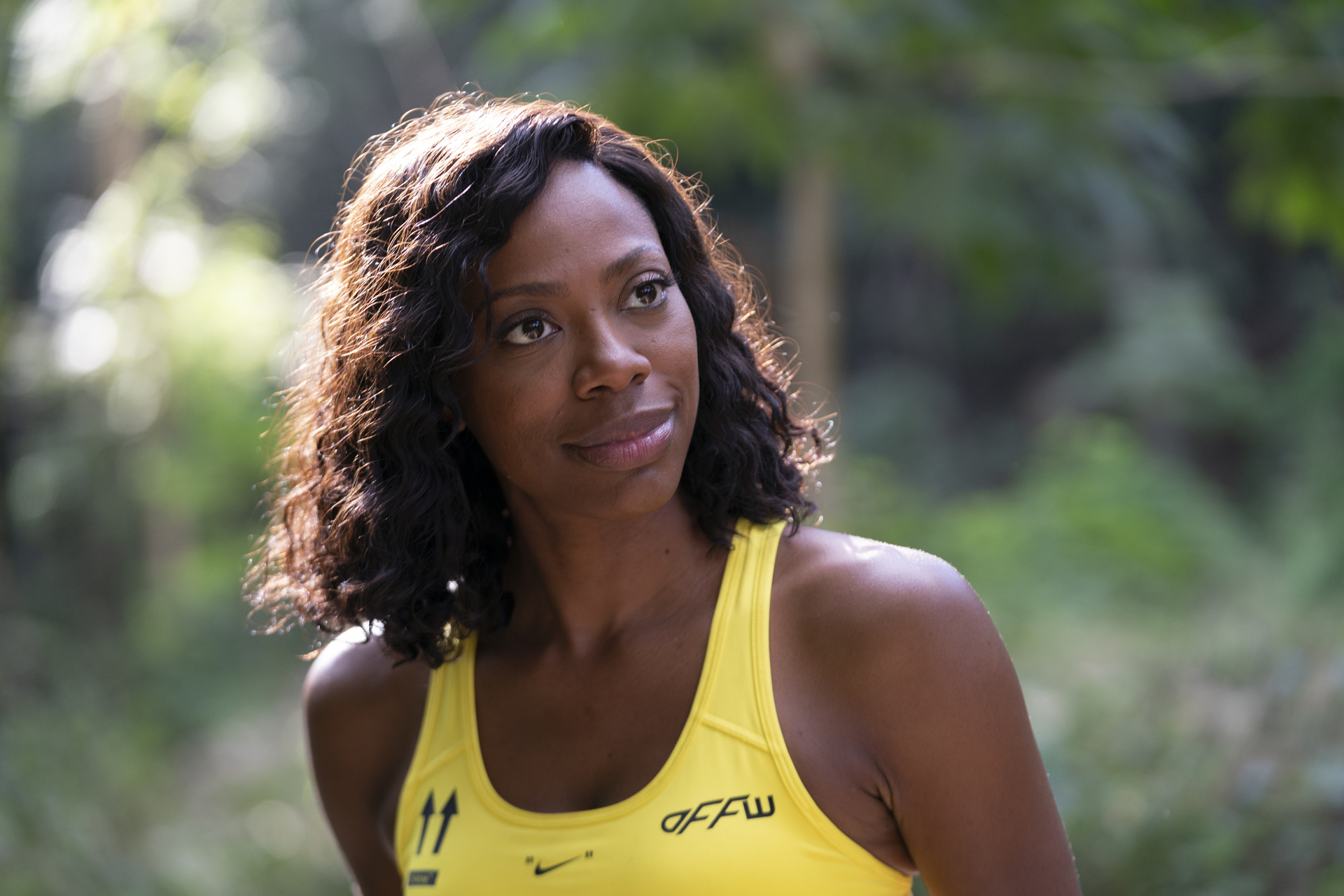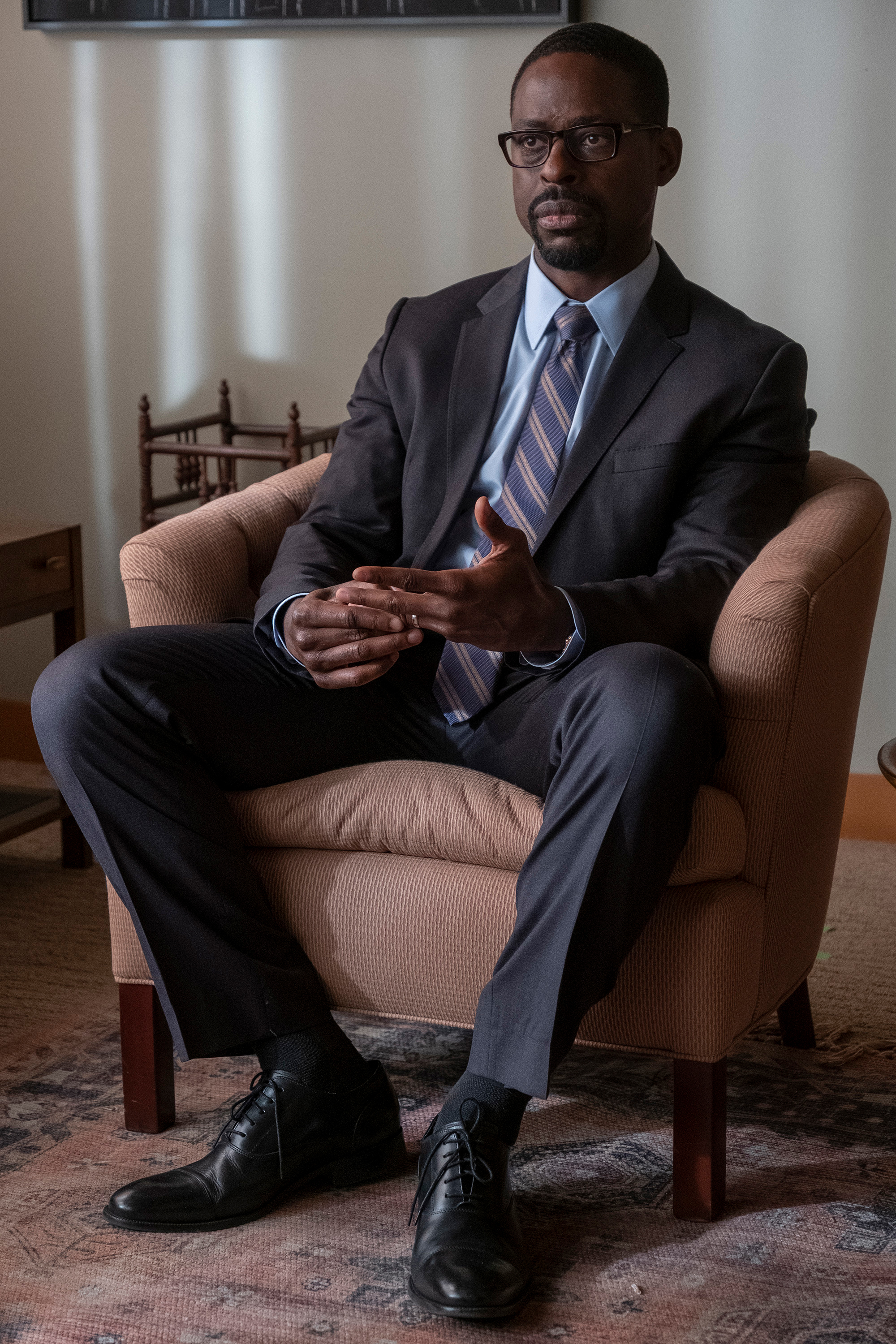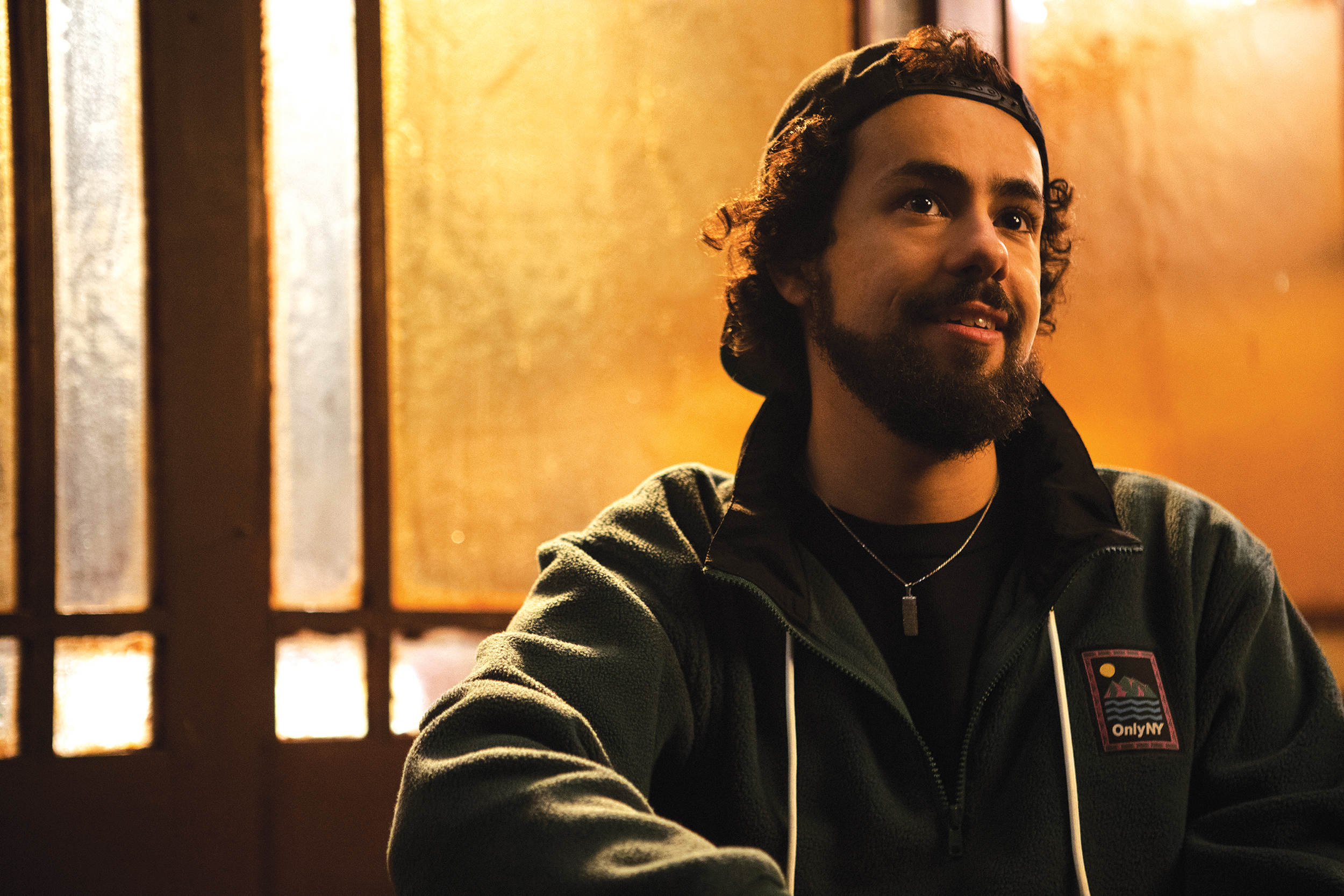How the Emmys Met the #BLM Moment
Record set with 35 of 102 acting nominations going to Black performers

The smarter way to stay on top of broadcasting and cable industry. Sign up below
You are now subscribed
Your newsletter sign-up was successful
On this season of HBO’s Insecure, Molly (Yvonne Orji) gets angry when she goes to get a towel at an exclusive Mexican resort and is asked to show her room key when a white woman who just did the same thing is handed a towel without question. When Molly returns, pissed off, to her Asian-American boyfriend and his brother, they write her off as an angry Black woman. Which just makes her all the angrier.
That particular episode aired the night before George Floyd was murdered in Minneapolis at the hands of police officers. Soon after, protests against police brutality and systemic racism erupted across the country. It was in the middle of that charged environment that the TV Academy announced the 72nd Annual Primetime Emmy nominations, on July 28. And for once in the difficult year that’s been 2020, there was some good news.
Of the 102 acting nominations among the series, limited series and TV movie categories, Black performers scored 35 nods or 34.3% of the total acting nominations. (Maya Rudolph earned three nominations, while Sterling K. Brown and Giancarlo Esposito each snapped up two.) That number is the all-time high for Black actors. The previous best was 27.7% in 2018, which fell to 20% in 2019.
Additionally, three of the six nominees for animation voice-over performance — Big Mouth’s Rudolph, Central Park’s Leslie Odom Jr. and Crank Yankers’ Wanda Sykes — and half of the 10 short-form acting nominees are Black.

Not Overlooked This Year
Asked for immediate reactions, This Is Us’ and The Marvelous Mrs. Maisel’s Brown summed it up by saying: “It’s f---ing dope. It’s really f---ing dope.”
Besides being nominated twice this year, Brown has earned a total of seven Emmy nominations and two wins since his breakout role as Christopher Darden in FX’s The People v. OJ Simpson: American Crime Story. When he won the Golden Globe in 2018 for best leading actor in a TV drama for playing Randall Pearson on NBC’s This Is Us, it marked the first time an African-American man had won that award in the Globes’ 75-year history.
The smarter way to stay on top of broadcasting and cable industry. Sign up below
“You cannot deny that … Black Lives Matter and the desire for criminal justice reform has influenced how people have voted for sure,” Brown told B+C. “I think that’s OK. I don’t think any Black folks who are nominated want to be nominated unless they truly deserve to be nominated. I think the Academy has recognized people who are putting in the work. I hope they continue to do that year in and year out.”
While Brown plays a Black man who was adopted by a white family as a baby and often struggles with his identity and place in the world as a result, The Good Place’s William Jackson Harper’s role as the brilliant but indecisive and anxious Chidi had little to do with race. Still, how race affects the casting process is something Harper constantly considers.
“There’s a lot of really good work being done by actors of color and when it comes to awards that can get overlooked,” said Harper, who is nominated for best supporting actor in a comedy. “This year, in regard to Black actors, that work is not being overlooked.”
Another key marker of the moment was that HBO’s limited series Watchmen scored the most nominations this year, with 26, including mentions for outstanding limited series and a lead actress nod for Regina King. Watchmen’s competition among limited series is Hulu’s Little Fires Everywhere, FX’s Mrs. America and Netflix’s Unbelievable and Unorthodox. Netflix was by far the entity that earned the most nominations this year with a record-setting 160, followed by HBO with 107.
Watchmen’s cast dominated the category of supporting actor in a limited series with Yahya Abdul-Mateen II, Jovan Adepo and Louis Gossett Jr. all nominated. (Tituss Burgess also grabbed a nomination for Netflix’s movie, Unbreakable Kimmy Schmidt: Kimmy vs. The Reverend, meaning that four of the category’s six slots were filled by Black men.)
“I was overjoyed to see the amount of Emmy nominations to Black actors this year,” Lucinda Martinez, executive VP of multicultural marketing, brand and inclusion strategy, WarnerMedia Entertainment, said. “To me, it represents excellence that is often overlooked. I hope this isn’t performative, but rather the Television Academy becoming more inclusive and self-aware as an organization of their past exclusionary practices, whether intentional or not.”
A key part of Watchmen’s storyline, an extension of the story told in the iconic graphic novel of the same name, is the 1921 Tulsa Massacre, in which a wealthy Black neighborhood was firebombed. There’s also a shadowy vigilante group, known as the Seventh Kalvary, that’s influenced by the Klu Klux Klan. The entire series, which premiered in October 2019 and concluded in December, now feels prescient.
“I hope that, at a minimum, these fictional stories raise awareness even if not always intended,” Martinez said. “It was surprising to many of us how the Tulsa Massacre on Watchmen was revelatory to so many viewers. How many people, including Black viewers, were unaware of the history of the Tulsa riots? By simply raising awareness about the injustices that have occurred allows for more enlightened dialogue around the solutions that need to happen if we do want to see systemic change happen.”

Stories That Relate
Other nominated shows, such as Insecure and ABC’s Black-ish, tell relatable stories that happen to include Black performers and are created and produced by Black creators and showrunners. Both series were nominated outstanding comedy series, along with Pop TV’s Schitt’s Creek, NBC’s The Good Place, Netflix’s Dead to Me and The Kominsky Method, Amazon Prime Video’s The Marvelous Mrs. Maisel and FX’s What We Do in the Shadows. Among critics and experts, Schitt’s Creek, which aired its seventh and final season this year, is the favorite to win.
On the drama side, the outstanding series nominees are notably less diverse: AMC’s Better Call Saul, Netflix’s The Crown, Ozark and Stranger Things, Hulu’s The Handmaid’s Tale, BBC America’s Killing Eve, Disney Plus’s The Mandalorian and HBO’s tale of filthy-rich white people and odds-on favorite, Succession. A stark miss in this category is FX’s Pose, although last year’s winner of lead actor in a drama, Billy Porter, is nominated again this year.
“Who is the target demo for any of these shows?” Orji said. “Insecure is for people who enjoy good, well-rounded characters. I watch Succession and I’m like, ‘Yo, these rich people really got a lot of problems.’ You get into shows because you understand the characters’ motivation, drive and humanity.”
To that end, most roles don’t call for an actor of a certain race to play a certain part. Black actors find that to be changing, bit by bit, but there is always room for improvement. In the age of streaming there are far more platforms, creating space to tell more diverse stories. Actors of color look forward to being able to take advantage of that.
“For performers of color, there are just fewer opportunities in general,” Harper said. “It doesn’t feel like people are intentionally trying to keep performers of color out, but there are a dearth of opportunities for them.
“I do think about it. As a Black actor, you do look at who else is cast, where on that call sheet you are going to be and, if you have a Black lead, will there be another significant Black lead?” he added. “The math of who’s going to be playing what part really figures into how you feel about your chances. I don’t know that a lot of actors have to think about it in that way.”
When it comes to getting awards recognition, that number shrinks even further for performers of color. “There are only a certain number of roles that mandate the kind of performances that merit awards attention,” Brown said. “You can only get nominated if you have something to do. I’m encouraged by that. There have been times in the past where I’ve seen Hollywood maybe trying to placate Black folks. This [moment] feels different to me.”
While Black actors netted by far the highest number of nominations among groups that are not white, other notable nominations went to Ramy Youssef, star of his eponymous comedy, Ramy, along with two-time Oscar winner Mahershala Ali, a Black performer who was nominated for best supporting actor in a comedy for playing Sheikh Ali Malik. Hulu’s Ramy marks the first time a Muslim-American comedy has earned nominations.
Outstanding Comedy Series
HBO’s Curb Your Enthusiasm
Netflix’s Dead to Me NBC’s The Good Place
HBO’s Insecure Netflix’s The Kominsky Method
Prime Video’s The Marvelous Mrs. Maisel
Pop TV’s Schitt’s Creek FX’s What We Do In the Shadows
Outstanding Drama Series
AMC’s Better Call Saul Netflix’s The Crown Hulu’s The Handmaid’s Tale
BBC America’s Killing Eve
Disney Plus’s The Mandalorian
Netflix’s Ozark
Netflix’s Stranger Things
HBO’s Succession
Outstanding Limited Series
Hulu’s Little Fires Everywhere
FX’s Mrs. America Netflix’s Unbelievable Netflix’s Unorthodox HBO’s Watchmen
Still Work to Do
While all of the actors were mostly thrilled to be nominated, they noted that there’s more work to do — such as bringing more people of color into the pipeline, developing talent and thinking outside the box when it comes to everything from casting to cinematography to directing. “It’s interesting and a little sad that in 2020 we’re still having these kinds of firsts,” Orji said. “If Joe Biden picks a Black woman as his running mate, really? It’s a big deal, but we’ve been having the civil-rights movement for years now.
“For me, the bigger and larger issue is not to celebrate the most Black performers,” she added. “Where are we in terms of directors, cinematographers, writers — not just the people that we see on-screen, but also the people behind the scenes. What are we doing to circumvent that and not just in the entertainment industry?”
What that requires is hiring people of color across the board so there is representation in the boardroom as well as on set, Orji said. “I think that true diversity and true progress is when you can have a woke white person as the VP of inclusion and you can have a Black person as the VP of programming,” Orji said. “What you find so often is, you have this Black woman as the head of diversity and inclusion, and you think, ‘That’s great, you want the Black person to patrol Black things.’ We need to have an equal number of people of color on this [project] because it makes the show better, because it makes this organization and company function at a better level. For me, at least, that’s progress.”
It also requires getting people of color in the writers’ room and behind the camera, said Brown, who has his own production company, Indian Meadows Productions. One of the company’s chief mandates is to ensure diversity and inclusion across all of its projects. “In terms of championing marginalized voices, there’s a specific pipeline to get to be a showrunner,” Brown said. “It’s not an easy thing to get into. And then you are trying to make sure that you have women, people of color, gay, lesbian and trans representation. Executives will say, ‘these people don’t have enough experience,’ but at some point in time, someone has to say, ‘we believe in this idea’ and take a chance.”
HBO’s Martinez concurred that breaking into the system remains difficult: “There is still a lot of existing inherent systemic bias in how we greenlight our shows, who decides what stories get told and which stories get supported with marketing dollars and promotion. We have to pay attention to the areas where we may be inadvertently participating in rigging it to exclude others. It’s time to come together as an industry and collectively decide we can and should do better.”
The 72nd Annual Primetime Emmy Awards air Sunday, Sept. 20, on ABC in a virtual ceremony hosted by Jimmy Kimmel.
Contributing editor Paige Albiniak has been covering the business of television for more than 25 years. She is a longtime contributor to Next TV, Broadcasting + Cable and Multichannel News. She concurrently serves as editorial director for The Global Entertainment Marketing Academy of Arts & Sciences (G.E.M.A.). She has written for such publications as TVNewsCheck, The New York Post, Variety, CBS Watch and more. Albiniak was B+C’s Los Angeles bureau chief from September 2002 to 2004, and an associate editor covering Congress and lobbying for the magazine in Washington, D.C., from January 1997 - September 2002.

